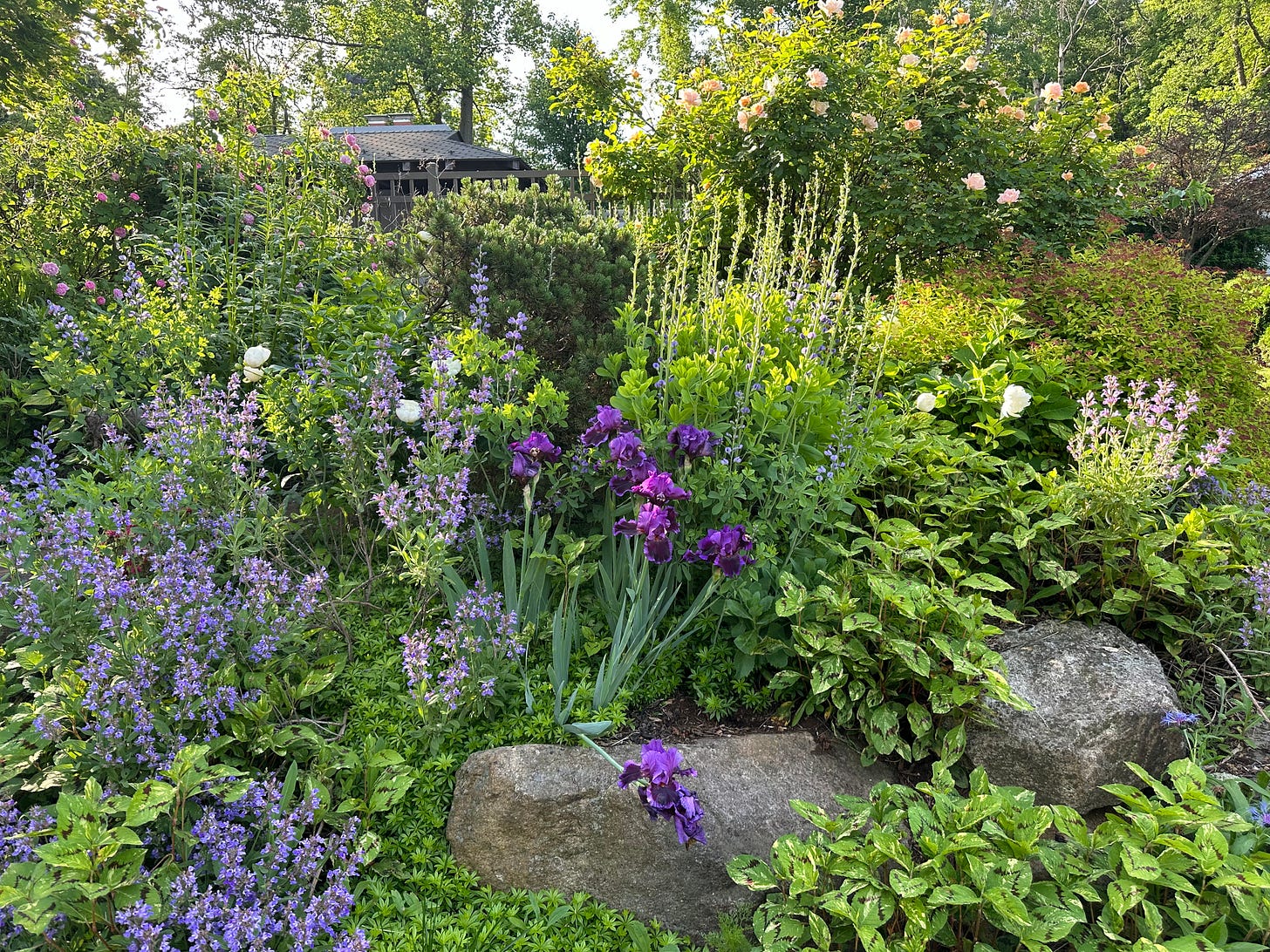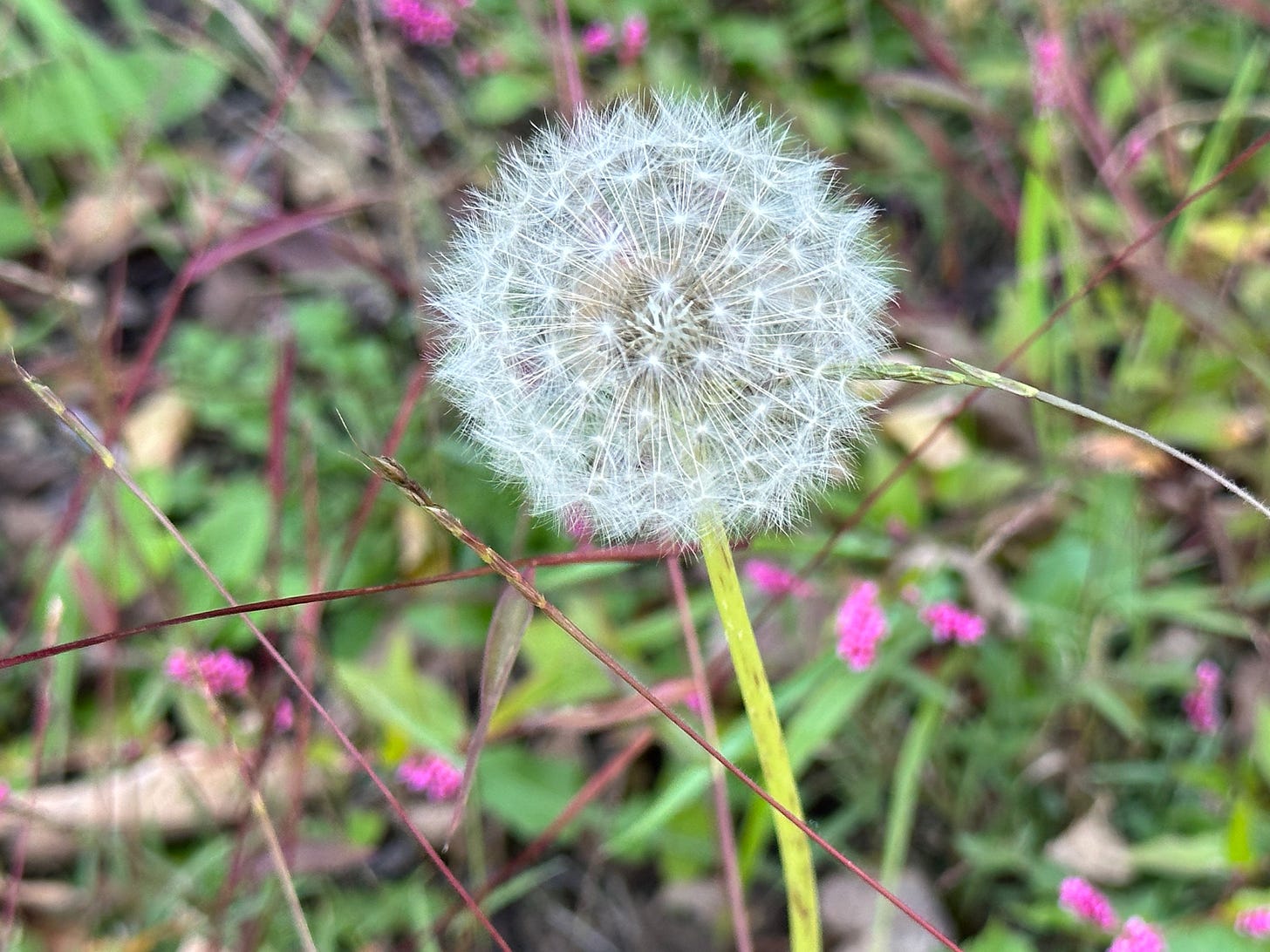
Deep breath. The chaos is making it hard to figure out what to do right now and how to do it. But Spring is HERE NOW. And we have a lot more control in our personal space than we think we do — control to heal the planet, prevent climate change, keep you and your family and pets healthy, and quietly, under the radar, express your power. And it starts in your personal space outdoors.
First, some facts. The current administration, which shall not be named, is undoing decades of environmental and health regulations that were created to keep us safe. It is now up to each of us to protect ourselves. Will Harris, the regenerative organic rancher from Georgia, recently posted on Instagram about how a law is being proposed in Georgia that will give immunity to pesticide producers for any adverse health effects or harms to crops or property. Many of these chemicals are produced by China. Paraquat, made by ChemChina for the US market, causes Parkinson’s and is banned in China, will no longer have to include a warning label on its products. Our old friend Glyphosate, now owned by Bayer, is a known carcinogen and will be allowed to be used extensively without recourse by farmers whose land and bodies have been contaminated.
Maybe you are not a farmer yourself, and you try to eat and buy organic when you can, but you love to visit your local nursery to buy pretty things to landscape your yard (hey, I did it too for decades)…many, many of those pretty plants at your local nurseries are contaminated with chemicals that also harm your soil, your family, and your environment. It’s time to look at our personal landscaping with the same lens we see our food and start the detoxification process, stop supporting industries and countries that are poisoning us, and take our safety into our own hands. Did you know that homeowners use more chemicals per acre than farmers do? And none of them are necessary!
But fear not! You can still have a beautiful yard and landscape! You can even still meet your HOA (Homeowners Association) requirements! But it takes a shift in thinking and building new networks and resources.

I have a dream that one day, all nurseries and all supermarkets will be all organic! I mean, why should we pay for people to poison us? There is 100% evidence that chemicals are not needed when plants are grown in ways that acknowledge the inherent needs of each plant. Every day, we are becoming wiser about what those needs are. And it turns out that what plants need is what we need, too: Clean soil, clean water, fresh air, organic nourishment (compost for plants, real food for us), diversity, exposure to lots of wildness, and probably a hefty dose of music and love. Until my dream comes true, here’s what we can do:
Stop environmental damage at its root: If we refuse to buy things (food, plants, clothes, cleaning supplies) with toxic chemicals, not only will their sales decrease but so will shipping costs and the pollution that results from transporting unnecessary things around the world. This is one of the most powerful results of buying things locally or not buying things at all. Avoid buying plants and garden supplies from the big box stores at all costs.
Buy seeds, plants, and seedlings from local organic sources. Many farmer’s markets sell plants, ask the vendor if they are organic. Google your local organic plant sales. Let nature spread seeds and plants. If you are lucky enough to live near an all-organic nursery, let us know about it! One organic wholesaler of plants near me is called Peace Tree. If you see their plants, buy them. They have a section on their website where you can find a retailer near you. If you don’t see them, ask for them. The simple process of asking for things is incredibly powerful. You are planting seeds in people’s minds.
STOP WEEDING. I am totally serious. Since I stopped weeding, everything has thrived beyond my wildest dreams. Plants need community just like we do, and many things we think of as weeds are essential hosts for foods for birds and bugs, fungi underground that assist in growth, and food for animals. For example, I noticed that my groundhogs would much rather eat my weeds than my other plants. In our haste to over-weed, we are literally forcing animals to eat the plants we don’t want them to.
Embrace wildness. If we can end the tyranny of tidiness in our own yards, we can fight back against tyranny in our country. What is the difference between an invasive plant and an immigrant? Nothing. Now go outside and sit with that thought and think long and hard about it. And be the change you want to see in the world.
Do no harm. Every single living thing has a purpose and a message for us. Don’t kill something just because it’s scary to you. Understand why it’s there and then work with it to find a mutually beneficial solution. Again, practice good diplomacy in your yard, and it will guide us to how to be better neighbors in the world. And while that sounds far-fetched right this moment, if we can’t learn how to do it at home, how can we expect leaders to do it in the world?
There are many resources available to teach us how to be better students and partners with nature in our yards and communities. I have just joined the board of PerfectEarth, which is a resource for all landscapers. While many of you might know me as an organic food gardener, cook, or just an all-around troublemaker, my true passion has always been co-creating beautiful environments with nature. The older and wiser I get, the more I realize that the less I interfere, the more beautiful things become. And, not a minor thing, the easier things become.
March 20th is the Spring Equinox. It’s also Plant A Seed Day. My peas are already in the ground, and my cold frame is planted with spinach and lettuce. I’m waiting until things warm up to a steady 50 degrees before I cut back the dead things in my garden because all the helpful friends are still sleeping in the stems and leaves on the ground. And no one likes to be woken up before they are ready! I can’t wait to see them all again! But if there is one thing nature has taught me, it’s the act of gentle patience. Our future may depend on it.





Working on all of this with native plants and rain gardens and removing invasive species on our quarter acre. Funny thing was a realtor told us our unique yard would be a deficit to selling. Sigh. I told her, well, when we sell, buyer will need to be someone who wants to help the environment by keeping up our conservation methods. There.
Love this, Maria. We let our front "lawn" (which was always a mix of crabgrass and wild things) go unmowed the last two years, returning it to a field. I also finally convinced my husband that he doesn't need to pay someone to come blow our leaves and take them away...ugh, that drove me crazy. Now they stay right wherever they land for the winter. (And many go in to our own compost pile.) I know there are all kinds of things living in them. Anyway, you make excellent points here. I've decided instead of growing mostly flowers in my new big garden that I will devote a lot of it to veg, and try to plant perennials - asparagus, etc - where I can. Please keep the garden posts coming. Your garden looks heavenly in that photo, too.